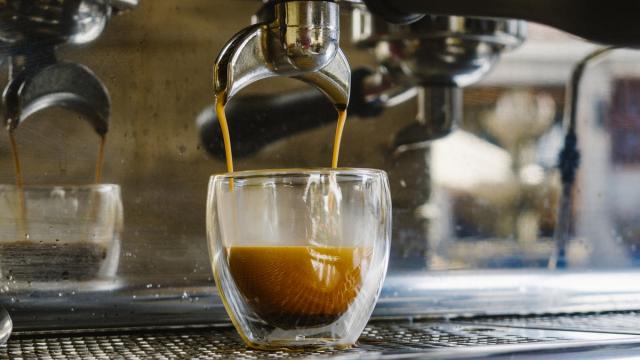Australia is a country of coffee lovers and that means you’ll need to become familiar with a bunch of coffee terms if you haven’t already.
The country’s long association with quality coffee and subsequently, snobbery, first started when waves of Italian and Greek immigrants emigrated after World War Two introducing the addictive beverage.
It’s meant Australia has had decades since to cultivate and refine its quality coffee culture. To explain these changes, we’ve had develop or add new vernacular to our repertoire.
Sure, it can be a little pretentious but it’s also because coffee is an important, and necessary, part of many people’s lives.
Roast character and profile
When you get to a fancier café, you might notice explanations for the coffee roast’s character. To put it simply, this just means how the flavour of the beans presents after it’s gone through roasting.
Those flavours could mean it’s slightly more toasty, chocolate-y or smoky.
How long the beans have been roasted for determines their profile too. A light roast means the beans have only been roasted for a short time and will typically have a lighter, sweeter flavour while dark roasts have been roasted for longer and tend to be more bitter or heavier in flavour.
Origins and blends
As the name suggests, a coffee’s origin is where it was grown and this can define the flavour. Most of the world’s coffee comes from three continents — South (and Central) America, Asia and Africa.
Typically, beans from Africa have a medium acidity but hover on the light side while the Latin American beans produce more nutty, chocolate-y flavours.
Beans from Asia tend be a bit fruitier and earthier and are considered the most unique in flavour.
When a brew is labelled single origin, it means the beans are sourced from a single place. Blends, on the other hand, mix coffee beans to create fuller, more complex flavours.
It really comes down to individual taste but unless you’re drinking it on its own, without milk, only a coffee fiend would really be able to notice the subtle differences.
Arabica vs robusta
Not all coffee plants are the same. There are two main varieties and they each produce unique beans. Those two varieties are Arabica beans, produced by the Coffea arabica plant, and Robusta beans from the Coffea canephora.
Arabica beans are the most common as they are considered well-balanced in terms of flavour while Robusta beans tend to be more bitter but contains far more caffeine.
Coffee preparation and styles
Finally, there’s the different ways coffee can be extracted from the beans for you to drink. While industrial coffee machines are still the most common at any café, other forms such as cold brew, drip, siphon and Aeropress have become more popular.
Cold-brew, as the coffee term suggests, is coffee that’s been steeped in cold water for hours. It’s usually served with milk and ice.
Drip coffee slowly drips out your shot while Aeropress uses air to extract it. The siphon looks like a science experiment using heat to extract from one beacon to another.
There’s also how the coffee is served. While we’re all familiar with the popular styles — latte, cappuccino and flat white — new versions have appeared in recent years.
Piccolo (sometimes known as a cortado overseas) and macchiato are all ‘short’ coffees meaning it comes with a shot and a bit of milk or froth. Ristretto is a ‘restricted’ or shorter espresso shot, which results in a sweeter, less bitter, shot being pulled. It also means it comes with a more concentrated caffeine content.
The coffee world is ever-evolving just like these terms, but there’s no shame in just asking your local barista what it all means if you’re finding yourself perplexed.

Leave a Reply
You must be logged in to post a comment.